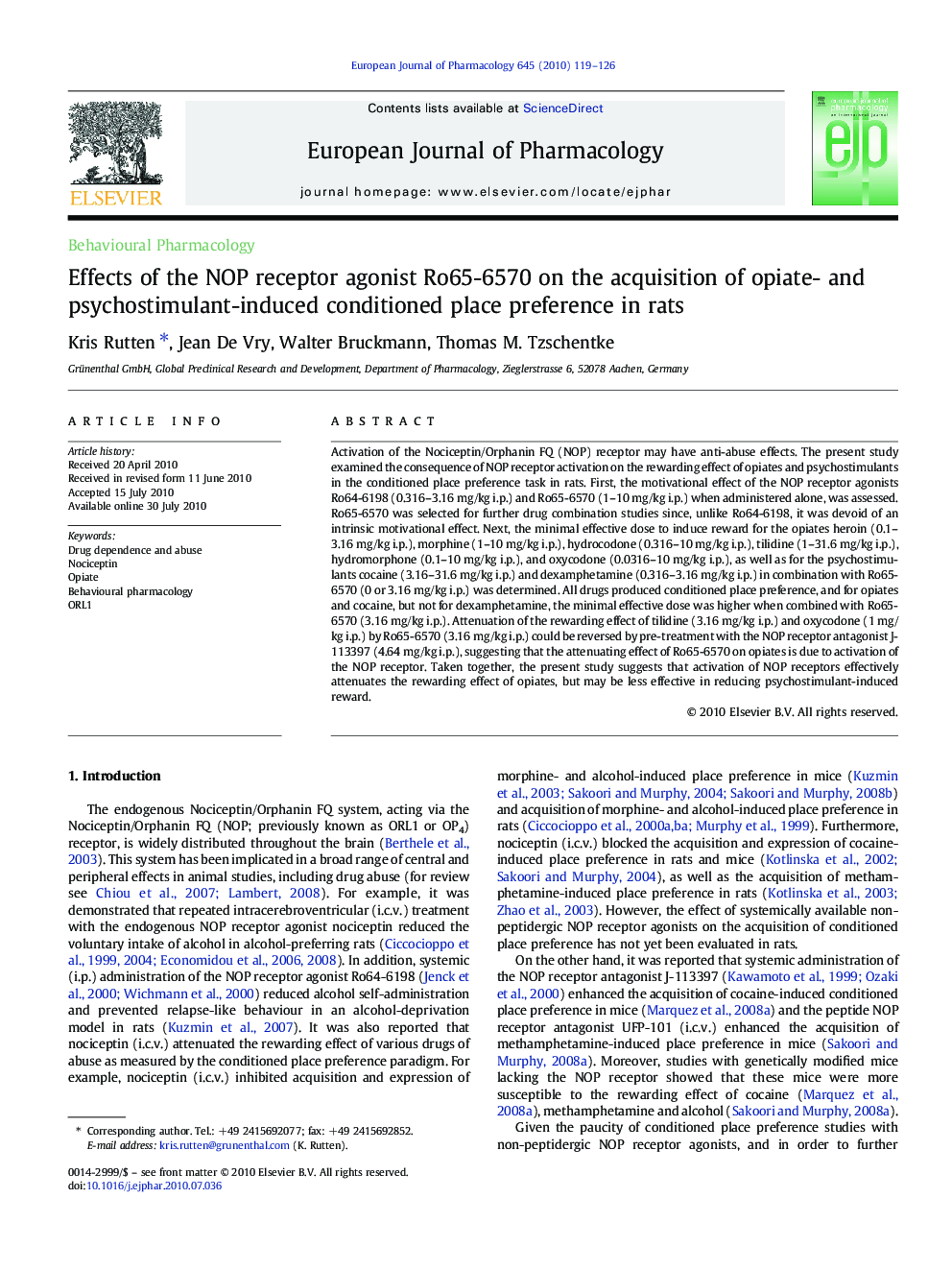| Article ID | Journal | Published Year | Pages | File Type |
|---|---|---|---|---|
| 2533328 | European Journal of Pharmacology | 2010 | 8 Pages |
Activation of the Nociceptin/Orphanin FQ (NOP) receptor may have anti-abuse effects. The present study examined the consequence of NOP receptor activation on the rewarding effect of opiates and psychostimulants in the conditioned place preference task in rats. First, the motivational effect of the NOP receptor agonists Ro64-6198 (0.316–3.16 mg/kg i.p.) and Ro65-6570 (1–10 mg/kg i.p.) when administered alone, was assessed. Ro65-6570 was selected for further drug combination studies since, unlike Ro64-6198, it was devoid of an intrinsic motivational effect. Next, the minimal effective dose to induce reward for the opiates heroin (0.1–3.16 mg/kg i.p.), morphine (1–10 mg/kg i.p.), hydrocodone (0.316–10 mg/kg i.p.), tilidine (1–31.6 mg/kg i.p.), hydromorphone (0.1–10 mg/kg i.p.), and oxycodone (0.0316–10 mg/kg i.p.), as well as for the psychostimulants cocaine (3.16–31.6 mg/kg i.p.) and dexamphetamine (0.316–3.16 mg/kg i.p.) in combination with Ro65-6570 (0 or 3.16 mg/kg i.p.) was determined. All drugs produced conditioned place preference, and for opiates and cocaine, but not for dexamphetamine, the minimal effective dose was higher when combined with Ro65-6570 (3.16 mg/kg i.p.). Attenuation of the rewarding effect of tilidine (3.16 mg/kg i.p.) and oxycodone (1 mg/kg i.p.) by Ro65-6570 (3.16 mg/kg i.p.) could be reversed by pre-treatment with the NOP receptor antagonist J-113397 (4.64 mg/kg i.p.), suggesting that the attenuating effect of Ro65-6570 on opiates is due to activation of the NOP receptor. Taken together, the present study suggests that activation of NOP receptors effectively attenuates the rewarding effect of opiates, but may be less effective in reducing psychostimulant-induced reward.
